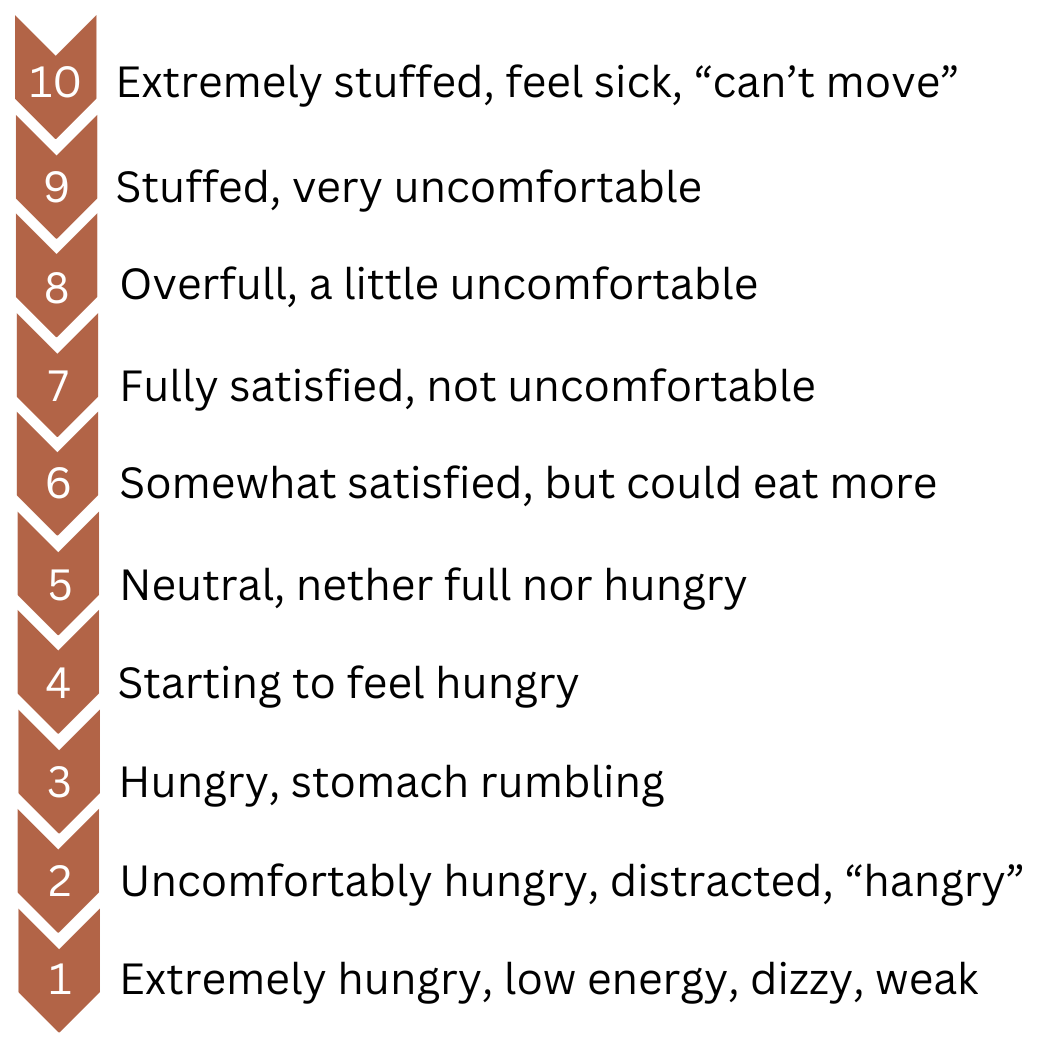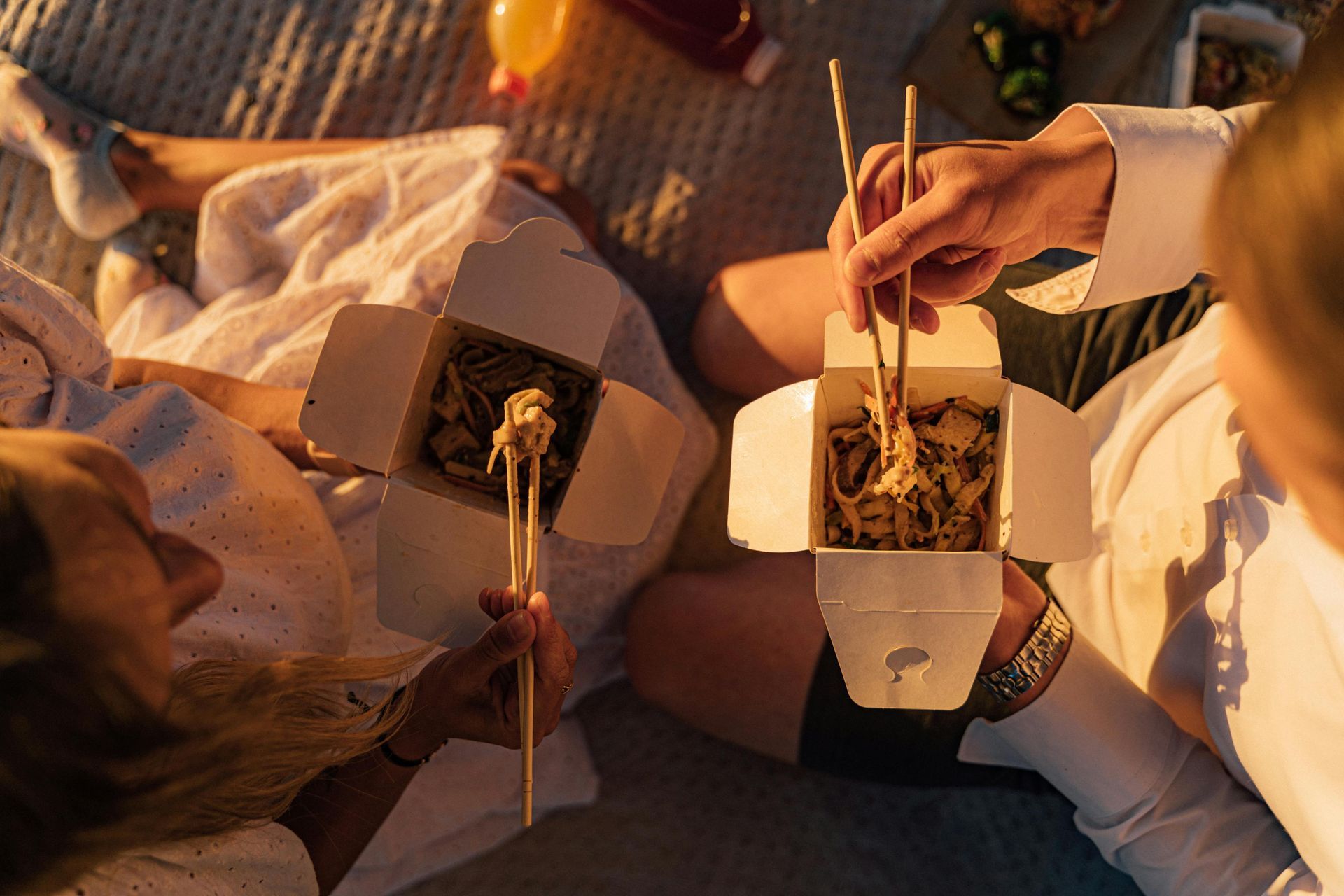"Is it good to feel hungry?"
Reading time: 3 mins
Originally shared as part of Inbox Reflections - honest, heartfelt emails to support your binge eating recovery as a highly sensitive woman.
I was on my morning walk yesterday and hadn’t yet had breakfast. Sometimes I eat it before my walk, sometimes not. It simply depends on how hungry I’m feeling each morning. About halfway through my walk, however, I noticed that my tummy was rumbling and that I was actually pretty hungry. I also didn’t have any food with me. In that moment, the phrase “It’s good to be hungry sometimes” popped into my head.
I imagine I first heard this phrase from my parents, an innocent reassurance when I was complaining that I was hungry in the back of the car or out on a walk. But as I grew up, this phrase got intermingled with diet messages and I believed that hunger was “good” because it meant weight loss. I began to purposefully restrict my food and made myself hungry because I wanted to be slimmer. And as I did this, I developed a binge eating disorder.
“But it is good to feel hungry, right?”
The answer to this question is: it depends. It depends on how hungry you are and for how long. It depends on how often you’re this hungry. It depends on what your relationships with food and your body are like.
Let’s consider this hunger / fullness scale for a moment:

There are of course benefits to allowing yourself to become a little to moderately hungry before eating; a 4 or 3 on the scale. On the most basic level, if you’re hungry, your body is prepared to efficiently take in, digest and metabolise your food. You even enjoy your food more if you’re actually hungry for it!
But if your hunger is more of a 2 or 1 on the scale, you’ve probably noticed that these are the times you’re most likely to binge eat. Feeling low on energy, heachachey and hangry isn’t fun either.
You may be wondering “what about intermittent fasting? That’s good for us isn’t it?” but that’s a whole other topic for another time. Ultimately, if you binge eat, I don’t recommend fasting because you want to focus on creating a sense of food security - a deep knowing that you can eat whatever you want whenever you want. And fasting, for most of us, doesn’t support this.
Feeling “safe” to be hungry
Now, back to the story about feeling hungry on my morning walk. I had that thought “it’s good to be hungry sometimes” and with it came a very momentary sense of “it’s okay that I’m hungry because it’s good”. Following that came a spiralling of thoughts (all within about 6 seconds!) with that dieter's voice like “hunger = weight loss” and “maybe I’ll go as long as I can without eating”. These thoughts instantly put me in a place of feeling restricted and in a way, panicked. The same panic that used to drive my binge urges.
Fortunately, I’ve gotten very good at catching these thoughts quickly and reminded myself of what I know to be true; that in that moment, it was safe for me to feel hungry.
It was safe for me to feel hungry because I’d only just started feeling that way.
It was safe because I was a 20-minute walk from home and I had food waiting for me there.
It was safe because I knew that the feeling of hunger alone wouldn’t drive me to binge eat.
It was safe because I trust that I can eat whatever I want, whenever I want.
Because of this mindset shift, I was able to acknowledge my hunger, feel okay about it and even relax into the moment. This is the freedom in binge eating recovery that I absolutely revel in! In the end, I got to enjoy the most beautiful walk - the first sunny morning after days of rain and a satisfying breakfast which I appreciated when I returned home.
I wanted to share this reframe from “it’s good to feel hungry sometimes” to “it’s safe to feel hungry sometimes” because I know that for some of you, that dieter’s voice will be there too. And I hope this helps you feel calm in those moments on your recovery journey when hunger strikes, and you’re not able to eat right away. That might be because you’re in a work meeting, you’re driving or you’re at a friend's and snacks aren’t on offer. This is life and it happens!
Want insights like this delivered to your inbox?
Sign up to
Inbox Reflections - short, heartfelt emails to support your binge eating recovery as a highly sensitive woman.
Gentle reminders, thoughtful questions, and steady guidance - sent each weekday.
Found this helpful? Here are some more resources for you…
Disclaimer: The content on this page is for educational and informational purposes only and is not a substitute for professional medical or mental health advice, diagnosis, or treatment. Always seek the advice of your physician or other qualified health provider with any questions you may have regarding a medical condition or mental health issue. Do not disregard professional medical advice or delay in seeking it because of something you have read on this page.






